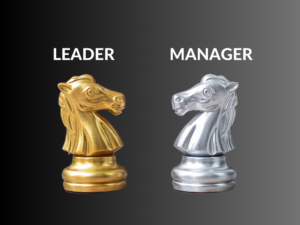The Difference Between a Manager and a Leader
When it comes to the roles of a manager and a leader, the two terms are often used interchangeably. However, there are distinct differences between the two that set them apart. While both roles are crucial in an organization’s success, understanding their unique characteristics can help individuals develop the necessary skills to excel in each role.
What is a Manager?
A manager is an individual who is responsible for overseeing and coordinating the work of a group of employees. Their primary focus is on achieving predetermined organizational goals by planning, organizing, and controlling resources, as well as making decisions to ensure the efficient and effective operation of their department or team.
Examples of a Manager
Managers can be found in various industries and positions, including:
- Project Manager
- Operations Manager
- Department Manager
- Store Manager
- Team Lead
Uses of a Manager
Managers play a crucial role in the organization by:
- Establishing goals and objectives
- Organizing resources
- Assigning tasks and responsibilities
- Motivating and guiding employees
- Monitoring performance
- Ensuring efficient use of resources
- Making decisions
What is a Leader?
A leader, on the other hand, is someone who inspires and influences others to achieve a common goal. They focus on creating a vision, setting direction, and empowering their team members to reach their full potential. Unlike managers, leaders often work collaboratively with their team rather than solely controlling and directing their activities.
Examples of a Leader
Leaders can be found in various settings and roles, such as:
- CEO
- Team Captain
- Community Organizer
- Politician
- Teacher
Uses of a Leader
Leaders contribute to the success of the organization by:
- Setting a clear vision and direction
- Inspiring and motivating team members
- Developing talent and fostering growth
- Encouraging innovation and creativity
- Building strong relationships and trust
- Empowering others
- Being adaptable and forward-thinking
Differences Between a Manager and a Leader
| Difference Area | A Manager | A Leader |
|---|---|---|
| Level of Authority | Managers have formal authority over subordinates. | Leaders may or may not have formal authority. |
| Focus | Managers focus on tasks and objectives. | Leaders focus on people and vision. |
| Style | Managers are more directive in their approach. | Leaders are more participative and inclusive. |
| Decision-Making | Managers make decisions based on their authority. | Leaders involve team members in decision-making. |
| Source of Power | Managers derive their power from their position. | Leaders gain power from their influence, skills, and expertise. |
| Long-Term Goals | Managers focus on achieving short-term goals. | Leaders focus on long-term vision and goals. |
| Effectiveness | Managers ensure efficiency and effectiveness in operations. | Leaders inspire and motivate teams to achieve excellence. |
| Relationships | Managers prioritize tasks over building relationships. | Leaders prioritize building strong relationships. |
| Adaptability | Managers focus on maintaining stability and control. | Leaders embrace change and promote innovation. |
| Nature of Influence | Managers rely on formal authority to influence others. | Leaders influence others through inspiration and trust. |
Conclusion
In summary, while both managers and leaders play crucial roles in organizations, their approaches, focuses, and styles differ significantly. Managers are task-oriented, directive, and derive their power from their position, while leaders are people-oriented, inclusive, and gain their power from their influence and expertise.
People Also Ask
Here are some common questions about managers and leaders:
1. What are the key responsibilities of a manager?
Managers are responsible for planning, organizing, leading, and controlling resources to achieve organizational goals.
2. What qualities make a good leader?
Good leaders possess traits such as strong communication skills, integrity, emotional intelligence, adaptability, and the ability to inspire and motivate others.
3. Can a manager also be a leader?
Yes, a manager can also be a leader. The most effective managers often possess leadership qualities that enable them to inspire and guide their teams.
4. Are leaders born or made?
While some individuals may naturally possess certain leadership traits, leadership skills can be developed and nurtured through experience, training, and personal growth.
5. Can a leader exist without followers?
No, a leader cannot exist without followers. Leadership is a relational concept that requires the presence of individuals who are willing to be influenced and inspired by the leader.



